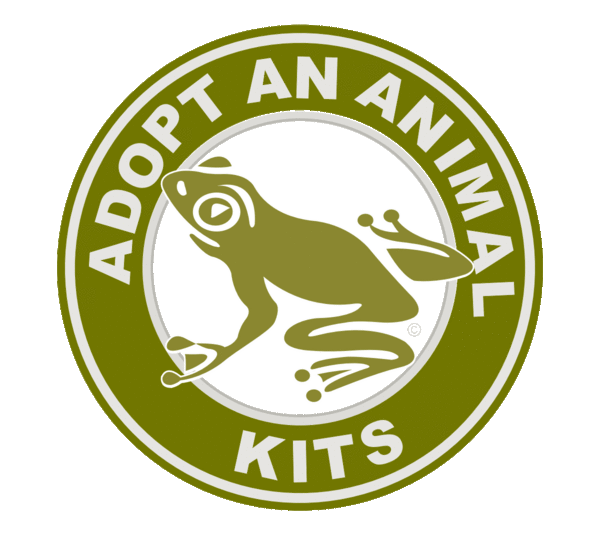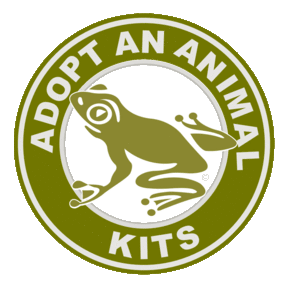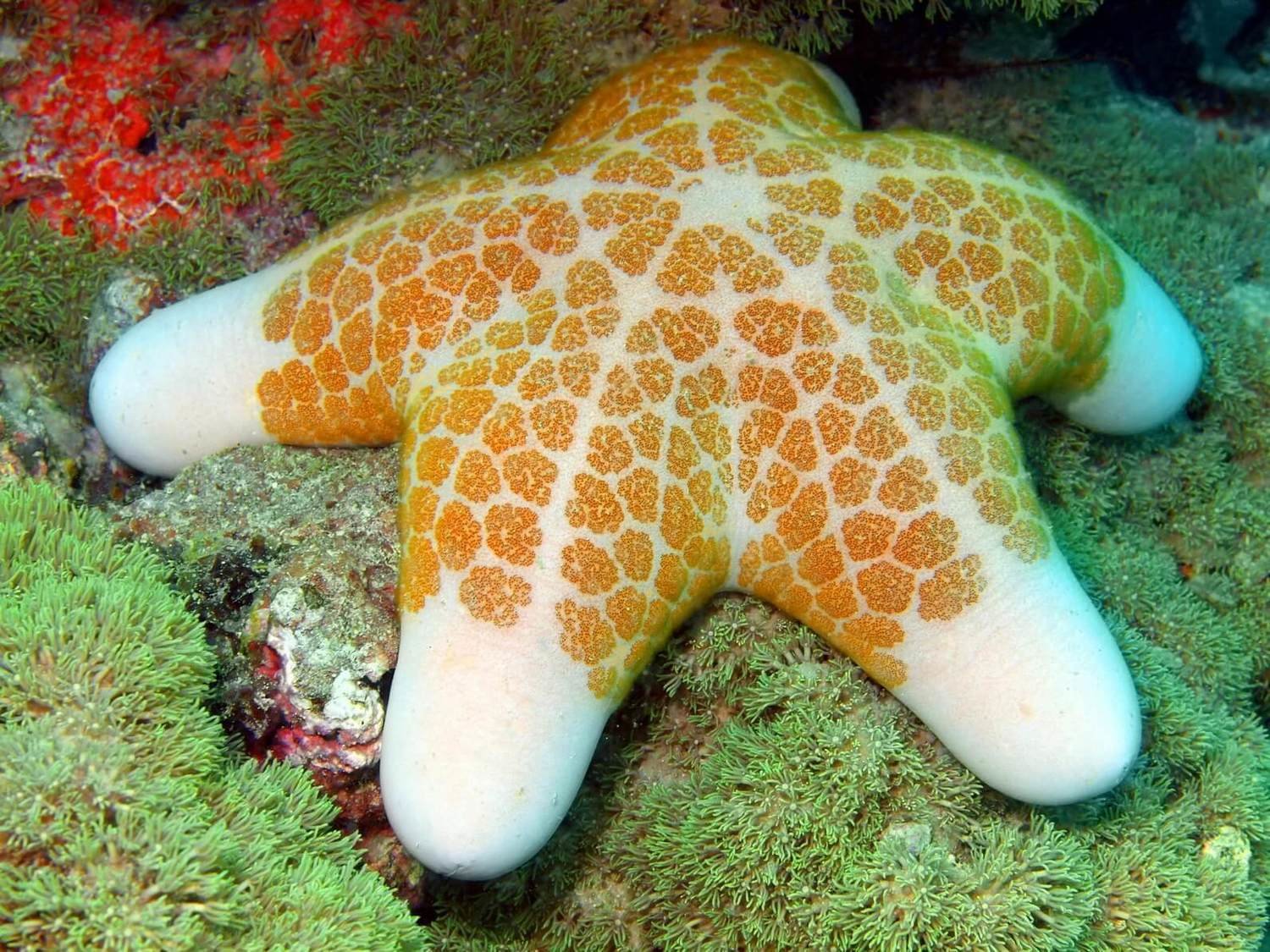

Adopt An Animal Kits
Adopt An Animal symbolically. Your Adopt An Animal Kit comes in a Deluxe Folder and includes: Glossy Photo of Your Adopted Animal; Adopt An Animal Adoption Certificate; Fact Sheet About Your Adopted Animal; Help Animals Info Cards Packed With Information On Animal Issues & How You Can Help Animals And The Environment. Adopt An Animal for Yourself or as a Gift.
Adopt A Starfish
Adopt A Starfish
Your Adopt A Starfish Kit comes in a Deluxe Folder and includes:
- Glossy Photo Of Your Adopted Starfish
- Adopt A Starfish Adoption Certificate
- Fact Sheet About Your Adopted Starfish
- Help Animals Info Cards Packed With Information On Animal Issues & How You Can Help Animals And The Environment
Adopt A Starfish Kits make great gifts and can be sent directly to the recipient. Simply supply the recipient's name and mailing address as shipping information. We'll even include a letter stating the Adopt An Animal Kit is from you.
Adopt An Animal symbolic adoption is a one time fee. Adopt an animal for yourself or order an Adopt An Animal Kit as a gift. Help make a difference for animals - Adopt An Animal Today!
Adopt A Starfish
Starfish, or sea stars, are star-shaped echinoderms belonging to the class Asteroidea. About 1,500 species of starfish occur on the seabed in all the world's oceans, from the tropics to frigid polar waters.
Starfish are marine invertebrates. They typically have a central disc and five arms, though some species have more. The aboral, or upper, surface may be smooth, granular or spiny, and is covered with overlapping plates. Many species are brightly colored in various shades of red or orange, while others are blue, grey or brown.
Starfish have tube feet operated by a hydraulic system and a mouth at the center of the oral, or lower, surface. They are opportunistic feeders, and are mostly predators on bottom-dwelling invertebrates. Several species have specialized feeding behaviors.
Starfish have complex life cycles and can reproduce both sexually and asexually. Most can regenerate damaged parts or lost arms and they can shed arms as a means of defense. Some starfish can even regenerate their whole body from a single arm, or even from fragments of an arm. Regrowth can take several months or years. A separated limb lives off stored nutrients until it regrows a disc and mouth and is able to feed again.
Echinoderms, including starfish, maintain a delicate internal electrolyte balance that is in equilibrium with sea water. This means that it is only possible for them to live in a marine environment and they are not found in any freshwater habitats. Starfish species inhabit all of the world's oceans. Habitats include tropical coral reefs, rocky shores, tidal pools, mud, sand, kelp forests, seagrass meadows and the deep-sea floor. The lifespan of a starfish varies considerably between species, generally being longer in larger forms.
Most species of starfish are gonochorous, there being separate male and female individuals. Some species are simultaneous hermaphrodites, producing eggs and sperm at the same time. Other starfish are sequential hermaphrodites. Individuals of species like Asterina gibbosa start life as males before changing sex into females as they grow older. In some species such as Nepanthia belcheri, a large female can split in half and the resulting offspring are males. When these grow large enough they change back into females.
Starfish fertilization is generally external. In most species, the buoyant eggs and sperm are simply released into the water (free spawning) and the resulting embryos and larvae live as part of the plankton. In others, the eggs may be stuck to the undersides of rocks. Some starfish brood their eggs in pouches or by "sitting" on them. Brooding is especially common in polar and deep-sea species that live in environments unfavorable for larval development, and in smaller species that produce just a few eggs.
In the tropics, a plentiful supply of phytoplankton is continuously available for starfish larvae to feed on. Spawning takes place at any time of year, each species having its own characteristic breeding season. In temperate regions, the spring and summer brings an increase in food supplies. The first individual of a species to spawn may release a pheromone that serves to attract other starfish. In some species, a male and female may come together and form a pair. Starfish may use environmental signals to coordinate the time of spawning (day length to indicate the correct time of the year, dawn or dusk to indicate the correct time of day), and chemical signals to indicate their readiness to breed.
Most species of starfish are generalist predators, eating microalgae, sponges, bivalves, snails and other small animals. Some species are detritivores, eating decomposing organic material and fecal matter.
Starfish occupy several significant ecological roles. Starfish are keystone species in their respective marine communities. Their relatively large sizes, diverse diets and ability to adapt to different environments makes them ecologically important.
The feeding activity of the omnivorous starfish Oreaster reticulatus on sandy and seagrass bottoms in the Virgin Islands appears to regulate the diversity, distribution and abundance of microorganisms. These starfish engulf piles of sediment removing the surface films and algae adhering to the particles. Organisms that dislike this disturbance are replaced by others better able to rapidly recolonize "clean" sediment. In addition, foraging by these migratory starfish creates diverse patches of organic matter, which may play a role in the distribution and abundance of organisms such as fish, crabs and sea urchins that feed on the sediment.
THREATS TO STARFISH
Several species of starfish sometimes suffer from a wasting condition caused by bacteria. Starfish are vulnerable to high temperatures. Starfish and other echinoderms are sensitive to marine pollution. The common starfish is considered to be a bioindicator for marine ecosystems.
Starfish are inhumanely taken from their habitat and sold to tourists as souvenirs, ornaments, curios or for display in aquariums. In particular, Oreaster reticulatus, with its easily accessed habitat and conspicuous coloration, is widely collected in the Caribbean. In the early to mid 20th century, this species was common along the coasts of the West Indies, but collection and trade have severely reduced its numbers. In the State of Florida, O. reticulatus is listed as endangered and its collection is illegal. Nevertheless, it is still sold throughout its range and beyond. A similar situation exists in the Indo-Pacific for species such as Protoreaster nodosus.
Adopt Adopt An Animal Kits
Our Adopt An Animal Kits are educational packets that allow you to symbolically adopt a favorite animal species and contain a variety of information promoting the protection of wildlife, companion animals, farm animals and the environment. By purchasing a symbolic adoption kit you will receive a packet of information regarding daily choices you can make to help the earth and animals.
Your Adopt An Animal Kit comes in a Deluxe Folder and includes:
Glossy Photo Of Your Adopted AnimalAdopt An Animal Adoption CertificateFact Sheet About Your Adopted AnimalHelp Animals Info Cards Packed With Information On Animal Issues & How You Can Help Animals And The Environment.
Adopt an animal for yourself or order an Adopt An Animal Kit as a gift. Symbolically adopting an animal is the perfect gift for a loved one who loves animals, and helps to promote the compassionate treatment of animals and respect for the environment by offering information on how to help the earth and animals. Adopt An Animal Kits can be sent directly to the recipient: simply supply the recipient's name and mailing address as shipping information. We'll even include a letter stating the Adopt An Animal Kit is from you.
Adopt An Animal Kits is a small, independent business not affiliated with any other business, non profit or charitable organization.
Fast Shipping!
Shipping time for Adopt An Animal Kits averages 2 to 4 business days - USA. Allow additional time for Adopt An Animal Kits orders outside the USA. Your Adopt An Animal Packet will arrive approximately 2 to 4 business days following shipping date. Shipping for Adopt An Animal Kits within the USA is by U.S.P.S. Priority Mail.
INTERNATIONAL ORDERS: Average shipping time for Adopt An Animal Kits outside of the USA is 5 to 14 business days, including Canada. International Shipping & Handling for Adopt An Animal Kits is by U.S.P.S. First Class Mail.
About Us

Adopt An Animal Kits, LLC
The world is teaming with an amazing diversity of animals. Some species are beautiful, others bizarre — but they all are important to the ecosystem and deserve our respect, compassion and protection. Unfortunately, many animal species are declining at a rapid rate as a result of irresponsible human activities. Habitat destruction, pollution, hunting, poor agricultural practices and changes in climate are among the threats faced by wildlife and domestic animals.
Adopt An Animal Kits, LLC is a small business who believes in promoting the advancement of compassionate living by educating the public about animal and environmental issues and what individuals can do to prevent cruelty to animals. Through our work, we strive to eliminate the prejudice of animals (speciesism) through educational efforts. Our business produces printed and printable educational materials available to individuals with an interest in earth and animal topics. Our Adopt An Animal Kits seek to educate and influence individuals on environmental and animal issues. The purchase of an Adopt An Animal Kit allows you to symbolically adopt your, or your loved one's, favorite animal species while promoting the protection of wildlife, companion animals, farm animals and the environment. Rather than adopting an indivdual animal, you are symbolicly adopting the species. Each kit contains a collection of information on how you or your loved one can make daily choices to help animals and the environment.
Our website provides an information portal regarding these issues. Information posted on the site is free of charge and available to anyone with an interest. Our printed and printable materials are available to individuals with an interest in earth and animal issues. We produce hundreds of fact sheets, flyers, and digital materials regarding environmental and animal issues. Most materials are available at no cost to anyone with an interest.
Adopt An Animal Kits, LLC is not a charitable or nonprofit organization.

